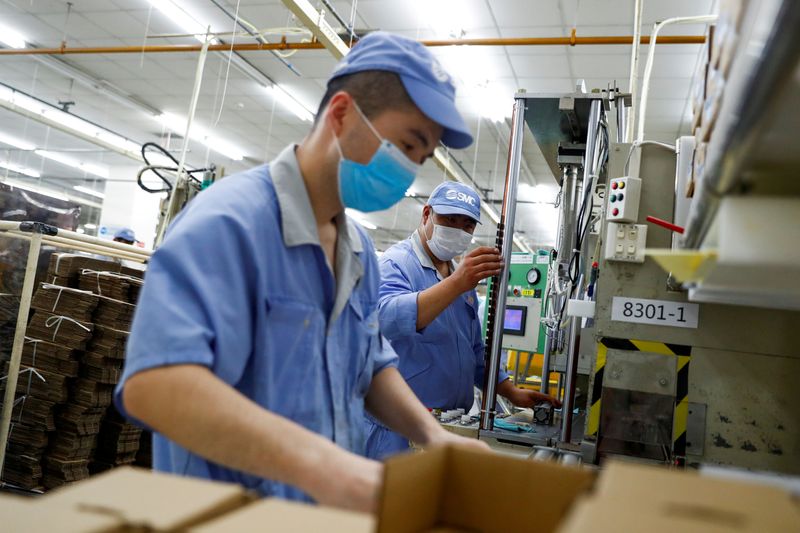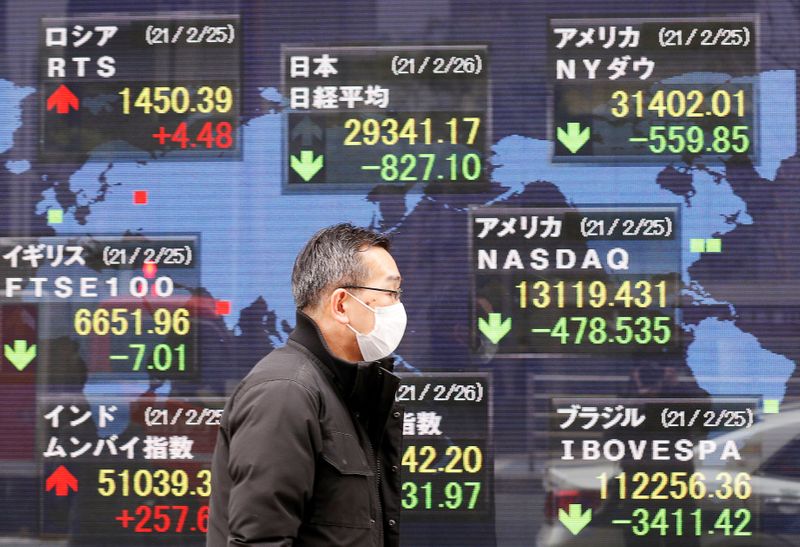By Leika Kihara
TOKYO (Reuters) - Solid demand for technology goods drove extended growth in Asia's factories in February, but a slowdown in China underscored the challenges facing the region as it seeks a sustainable recovery from the shattering COVID-19 pandemic blow.
The vaccine rollouts globally and pick-up in demand provided optimism for a vast number of businesses that had grappled for months with a cash-flow crunch and falling profits.
In Japan, manufacturing activity expanded at the fastest pace in over two years while South Korea's exports rose for a fourth straight month in February, suggesting the region's export-reliant economies were benefiting from robust global trade.
On the flip side, China's factory activity grew at the slowest pace in nine months in February, hit by a domestic flare-up of COVID-19 and soft demand from countries under renewed lock-down measures.
"In all, the softer pace of activity in today's (Chinese) manufacturing print is likely to be temporary, and we expect the growth momentum to pick back up on the back of a broadening out of the domestic demand recovery and a pickup in global demand," said Erin Xin, an economist at HSBC.
"However, household consumption, while recovering, has not yet fully reached pre-pandemic levels of growth due to continued labour market pressure."
China was the first major economy to lead the recovery from the COVID-19 shock, so any signs of prolonged cooling in Asia's engine of growth will likely be a cause for concern.
With the global rebound still in early days, however, analysts say the outlook was brightening as companies increased output to restock inventory on hopes vaccine rollouts will normalise economic activity.
"The recovery in durable-goods demand is continuing, which is creating a positive cycle for manufacturers in Asia," said Shigeto Nagai, head of Japan economics as Oxford Economics.
"As vaccine rollouts ease uncertainties over the outlook, capital expenditure will gradually pick up. That will benefit Japan, which is strong in exports of capital goods," he said.
China's Caixin/Markit Manufacturing Purchasing Managers' Index (PMI) fell to 50.9 in February, the lowest level since last May but still above the 50-mark that separates growth from contraction.
That was in line with official manufacturing PMI that showed factory activity in the world's second-largest economy expanded in February at the weakest pace since May last year.
Activity in other Asian giants remained brisk.
The final au Jibun Bank Japan Manufacturing Purchasing Managers' Index (PMI) jumped to 51.4 in February from the prior month's 49.8 reading, marking the fastest expansion since December 2018, data showed on Monday.
In South Korea, a regional exports bellwether, shipments jumped 9.5% in February from a year earlier for its fourth straight month of increase on continued growth in memory chip and car sales.
India's factory activity expanded for the seventh straight month in February on strong demand and increased output, though a spike in input costs could weigh on corporate profits ahead.

The Philippines, Indonesia and Vietnam also saw manufacturing activity expand in February, a sign the region was gradually recovering from the initial hit of the pandemic.
